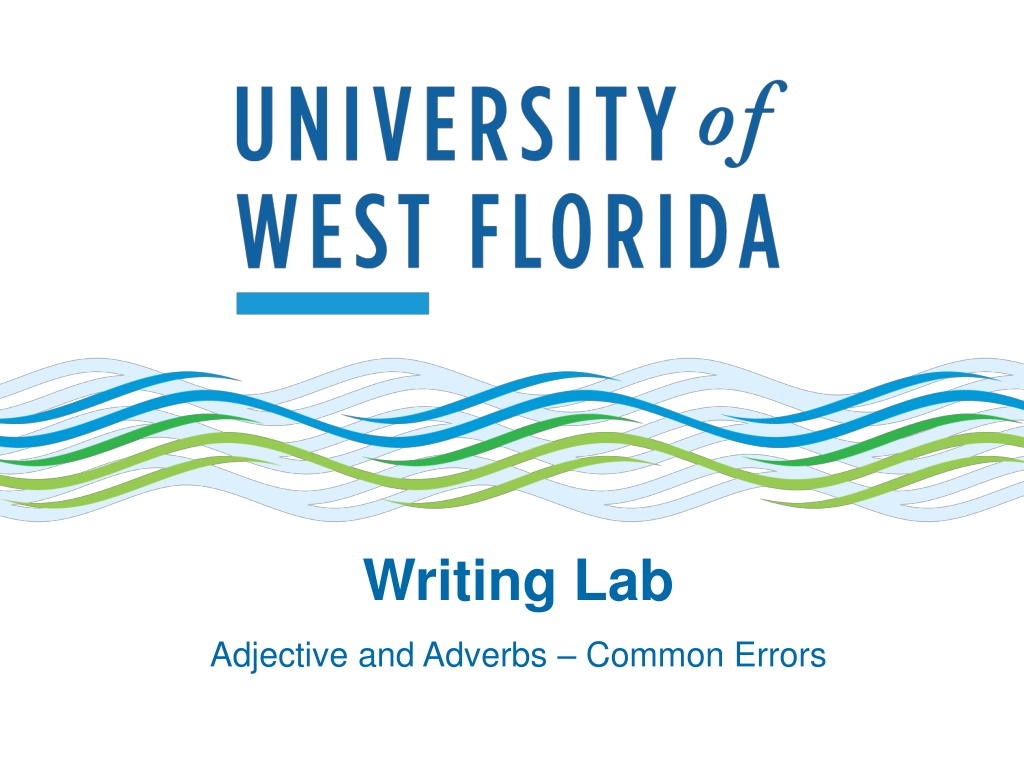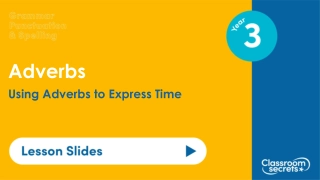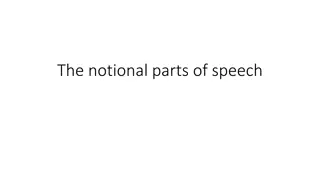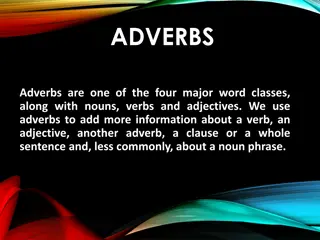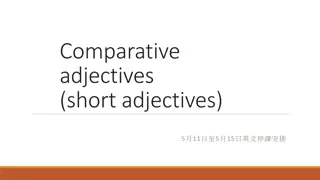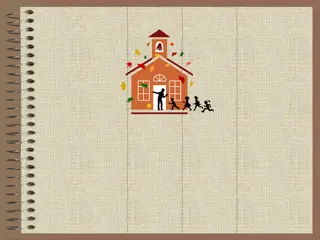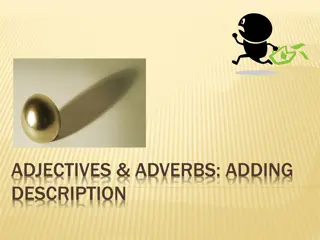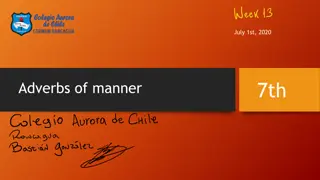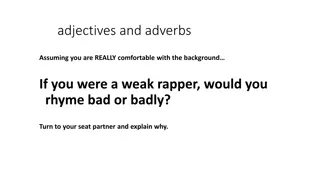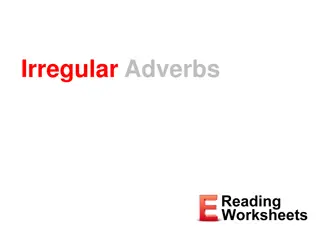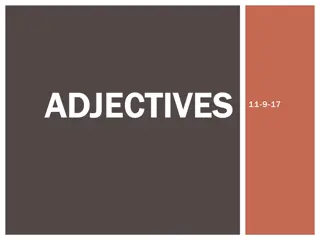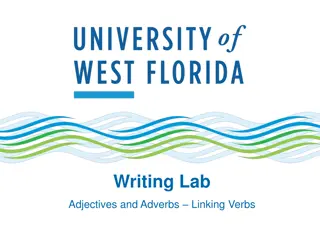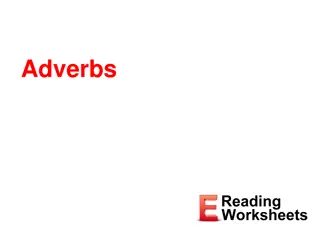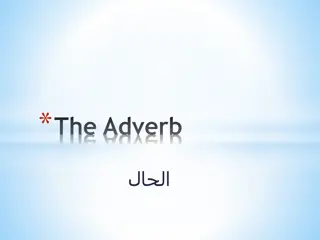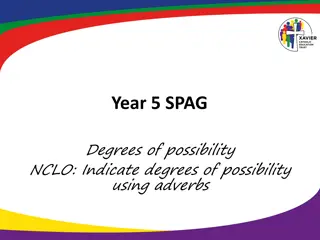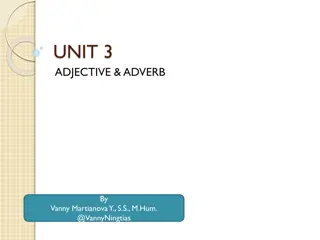Understanding Adjectives and Adverbs Usage: Common Errors and Differences
Adjectives modify nouns and pronouns, while adverbs modify verbs, adjectives, and other adverbs. Learn the differences, common errors, and how to distinguish between commonly confused adjective/adverb pairs like real/really and sure/surely. Enhance your understanding of when to use each correctly.
Download Presentation

Please find below an Image/Link to download the presentation.
The content on the website is provided AS IS for your information and personal use only. It may not be sold, licensed, or shared on other websites without obtaining consent from the author. Download presentation by click this link. If you encounter any issues during the download, it is possible that the publisher has removed the file from their server.
E N D
Presentation Transcript
Writing Lab Adjective and Adverbs Common Errors
Adjectives Adjectives modify nouns and pronouns. Adjective Test: The _____ thing is very _____. Correct: The quiet thing is very quiet. Incorrect: The quietly thing is very quietly. Adjectives answer the following questions: Which one? What kind? How many?
Adverbs Adverbs modify verbs, adjectives, and other adverbs. Adverbs generally end in ly. Adverbs answer the following questions: Where? When? How? How often or how long? How much?
Commonly confused adjective/adverb pairs Since many adverbs are formed by adding an ly suffix to an existing adjective, people often confuse adjective/adverb pairs such as real and really or sure and surely. To determine which word you need, replace the commonly confused adjective with a synonym that does not have a corresponding confusing option.
Real and really Real is an adjective meaning genuine : The admiral has real charm. Really is an adverb meaning very : He is really charismatic. Note: in academic writing, avoid really and very as many professors see these words as informal. The use of real as an adverb is colloquial and nonstandard: He writes really (NOT real) well.
Sure and surely Sure is an adjective meaning certain : Are you sure (certain)? Yes, I m sure (certain) about the date. Surely is an adverb meaning certainly : You surely (certainly) do look good. This Bundu mask surely (certainly) is expensive.
Thats all, folks! This lesson is part of the UWF Writing Lab Grammar Mini-Lesson Series Lessons adapted from Real Good Grammar, Too by Mamie Webb Hixon To find out more, visit the Writing Lab s website where you can take a self-scoring quiz corresponding to this lesson
